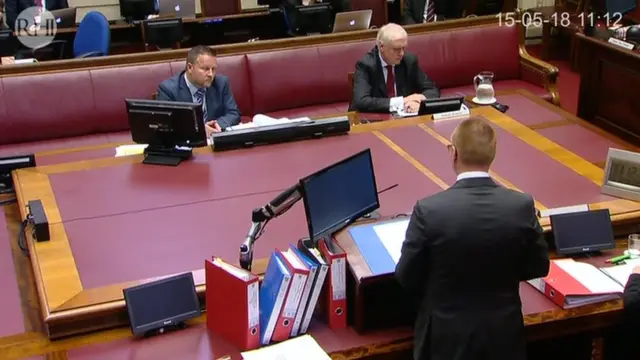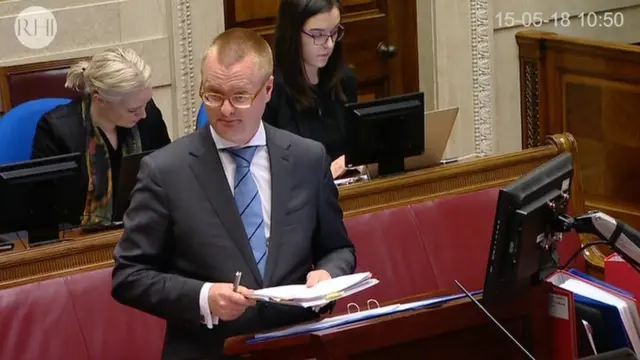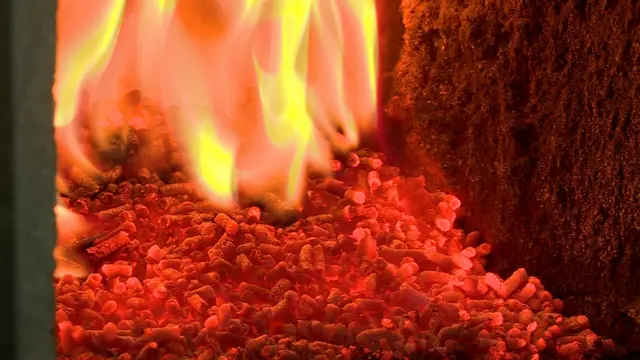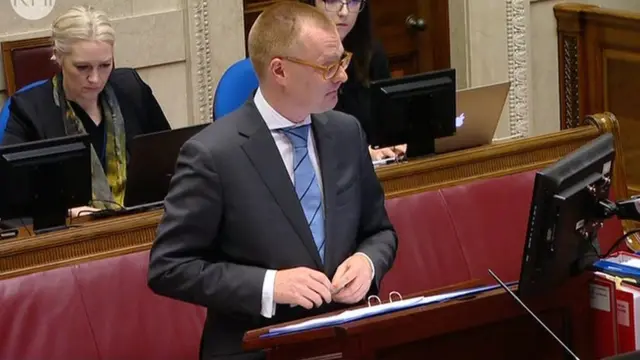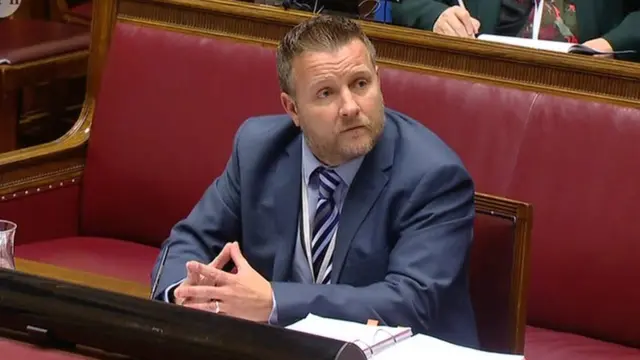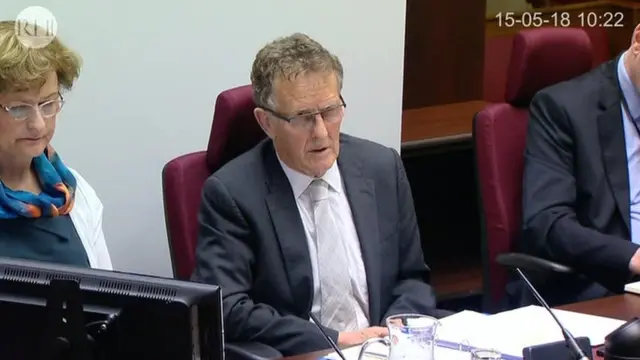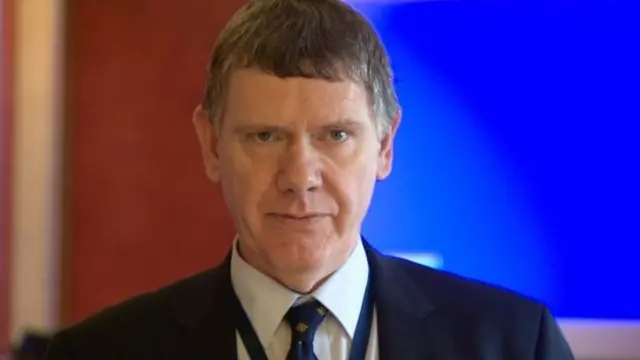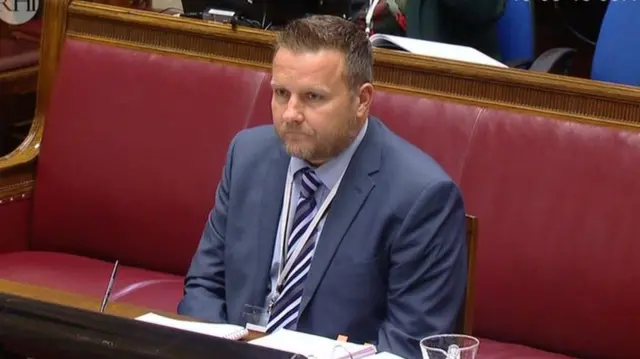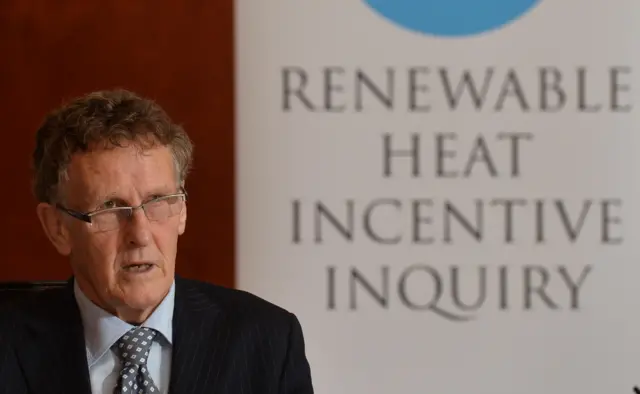'Consultation with industries was naive'published at 12:04 BST 15 May 2018
Mr Wightman circulated key details about proposed changes to the RHI scheme with the poultry and renewable industries in the summer of 2015.
The changes - which were designed to control the cost of the initiative as the number of applications increased - were made in November that year.
 Image source, PA
Image source, PAIn his witness statement, Mr Wightman says he consulted with industry "to inform the policy proposals and my subsequent advice to the minister" given that civil service guidance is that all policies should be based on evidence.
In its evidence to the inquiry, the Department for the Economy - formerly DETI - acknowledges that point but suggests Mr Wightman's consultation should, as Mr Aiken puts it, have been "less naively conducted".
